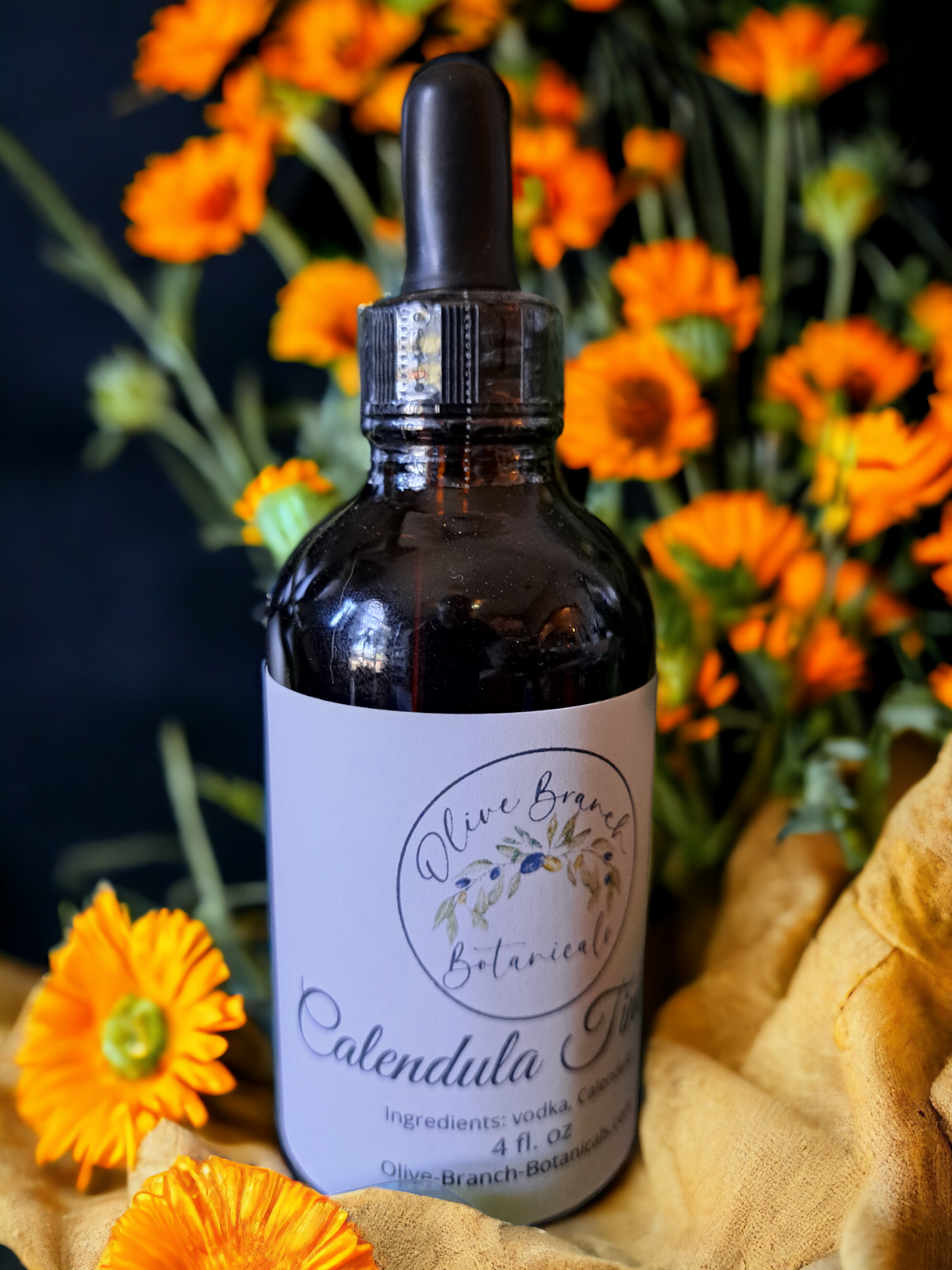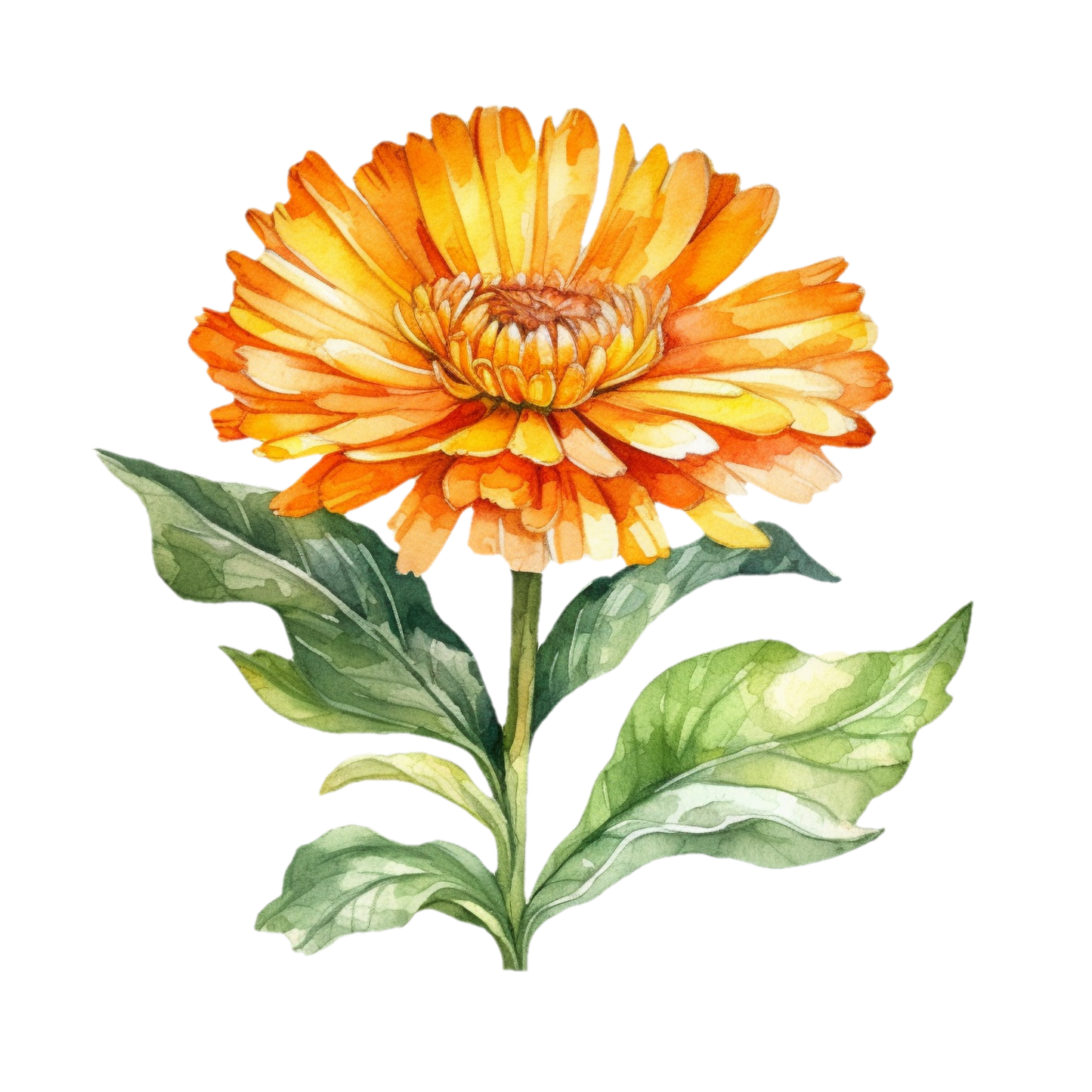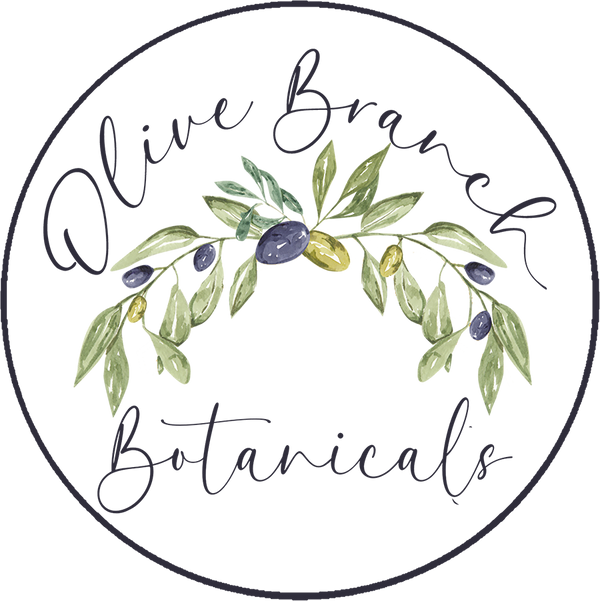Olive Branch Botanicals
Calendula tincture
Calendula tincture
Couldn't load pickup availability
Calendula tincture is a powerful herbal remedy that provides relief from inflammation, muscle spasms, and infections. It is a potent anti-microbial and anti-viral, with healing benefits for ulcers, wounds, and hemorrhoids. In addition, calendula tincture may improve oral health.
1. Skin Health: Calendula tincture promotes healthy skin and supports lymph, liver, digestive, and breast health. It is used to treat wounds, ulcers, herpes, scars, skin damage, frostbite, and blood purification. It is also used for acne, reducing inflammation, controlling bleeding, and soothing irritated tissue 1.
2. Medicinal Properties: Calendula tincture has various biological activities, including analgesic, antidiabetic, anti-ulcer, and anti-inflammatory properties. It is also used for gastro-intestinal, gynecological, and eye diseases, as well as in some cases of burns. Additionally, it has antiviral and anti-genotoxic properties in vitro 1.
3. Wound Healing: Calendula tincture is often applied to the skin to help wounds heal faster, fight minor infections, and treat burns, cuts, and bruises. It is also used to treat hemorrhoids and is recommended by professional homeopaths for healing first-degree burns and sunburns 1 2.
4. Sun Protection: Calendula extract possesses potent antioxidants, including triterpenes, flavonoids, polyphenols, and carotenoids. It has been found to have a sun protection factor (SPF) of 8.36, making it beneficial for protecting the skin from the harmful effects of UV radiation 3.
5. Internal Use: Traditionally, calendula tincture was taken internally and gargled to reduce inflammation of the mucous membranes of the mouth and throat. It was used to soothe sore throats, laryngitis, tonsillitis, coughs, dryness of the lungs, and digestive upsets 4.
**Disclaimer**
These statements have not been evaluated by the Food and Drug Administration. This product is not intended to diagnose, treat, cure, or prevent any disease. Similarly, statements regarding dietary supplements have not been evaluated by the FDA and are not intended to diagnose, treat, cure, or prevent any disease or health condition.
Before starting any new treatment, especially those involving herbal extracts, individuals should consult with their healthcare providers to ensure compatibility with existing conditions or medications. This information serves to educate and inform, not to replace medical advice. While many herbs are generally safe, potential medical interactions exist.
Share




